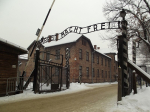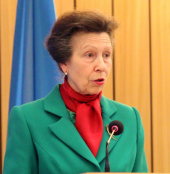
Construction began on Sunday for the Serbian stretch of Russia's South Stream pipeline which will bring Russian gas directly to Europe, making it less vulnerable to price disputes.
Serbian President Tomislav Nikolic, Prime Minister Ivica Dacic and Alexei Miller, the chief executive of Russian gas giant Gazprom, watched a live broadcast of two giant pipes being welded together near the northern Serb village of Sajkas.
"This is a historic project... which will eliminate transit risks and secure gas supplies to Serbia and Europe," Miller said at the ceremony.
The launch was praised by Vladimir Putin, who said in a statement the new pipeline would "allow consumers in southeastern Europe to take advantage of large Russian gas wells, thus reducing the risks of transit by third parties".
"It will help consolidate international energy security," said the Russian president.
Gazprom signed a deal with Serbia in October 2012 to construct the 421-kilometre (261-mile) stretch of the pipeline, worth some 1.9 billion euros ($2.57 billion).
The works are planned to be completed within two years, with the first gas shipments expected to flow in early 2016.
Dacic told AFP in an interview on Saturday that the South Stream project "is undoubtedly of very high importance" for Serbia.
"It is one of the biggest investments in Serbia in the past few decades... The value of works done here are estimated at two billion euros," Dacic said.
Serbia hopes to profit with around 100 million euros annually from income of gas transit through its territory, he said.
The project will be fully financed by the Russian side with cash-strapped Serbia paying back its share by using transit fees once the pipeline is in operation, Dacic said.
The pipeline would run from Russia under the Black Sea to Bulgaria, Serbia and Hungary before branching out to Western Europe. It would bypass Ukraine with which Russia has strained relations.
The pipeline, with an annual capacity of 63 billion cubic metres, will make Serbia an important regional energy force and will also secure the former Yugoslav republic with a steady gas supply.
Dacic said he had proposed that a branch of Serbia's pipeline go to Kosovo, but Pristina has yet to respond to the offer made during EU-sponsored talks in Brussels.
In recent years, Serbia was among the countries hit hard by severe gas shortages during price spats between Moscow and Kiev.
afp, photo by Thawt Hawthje







































